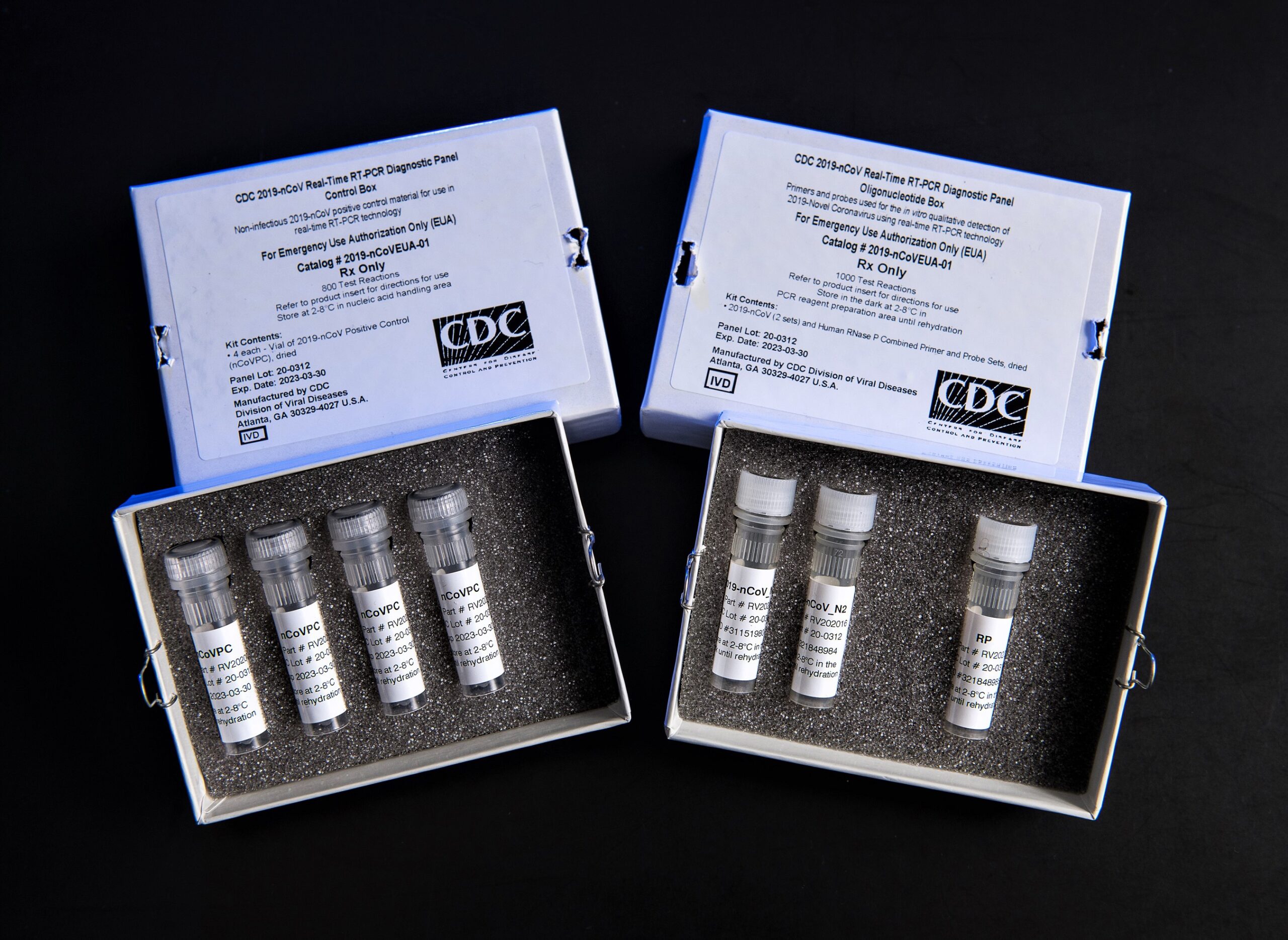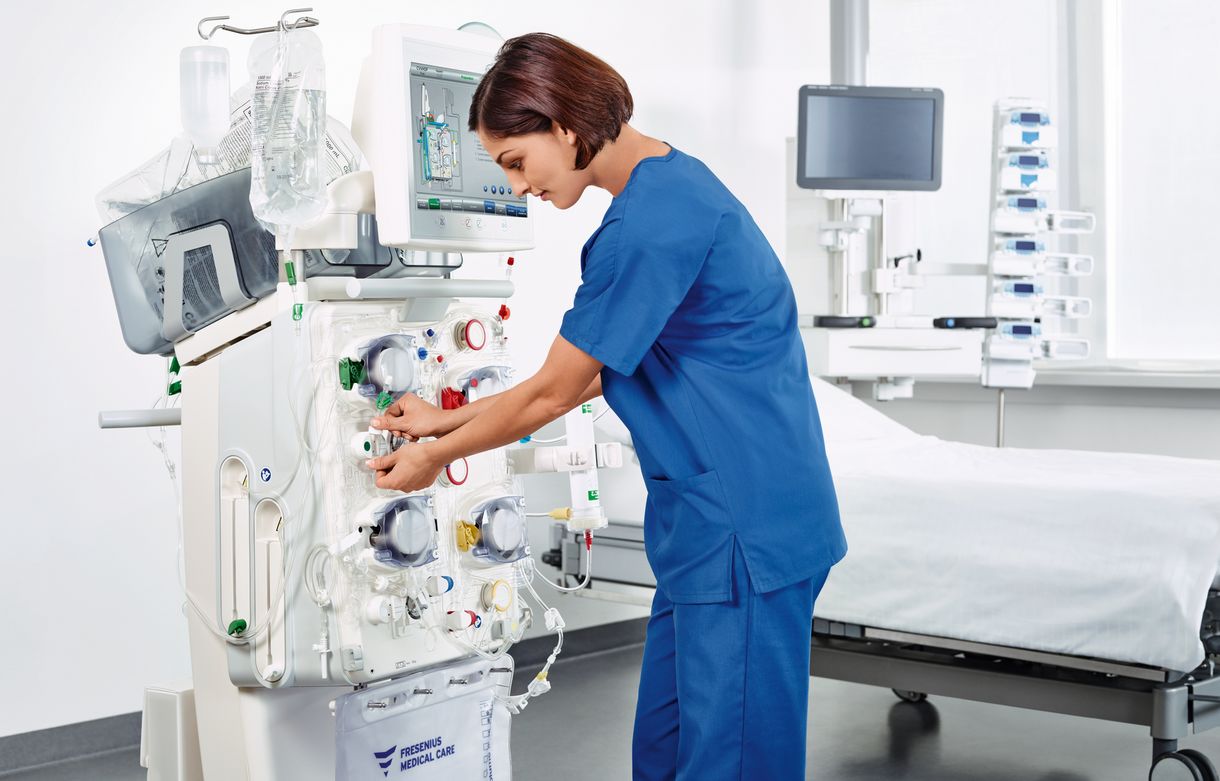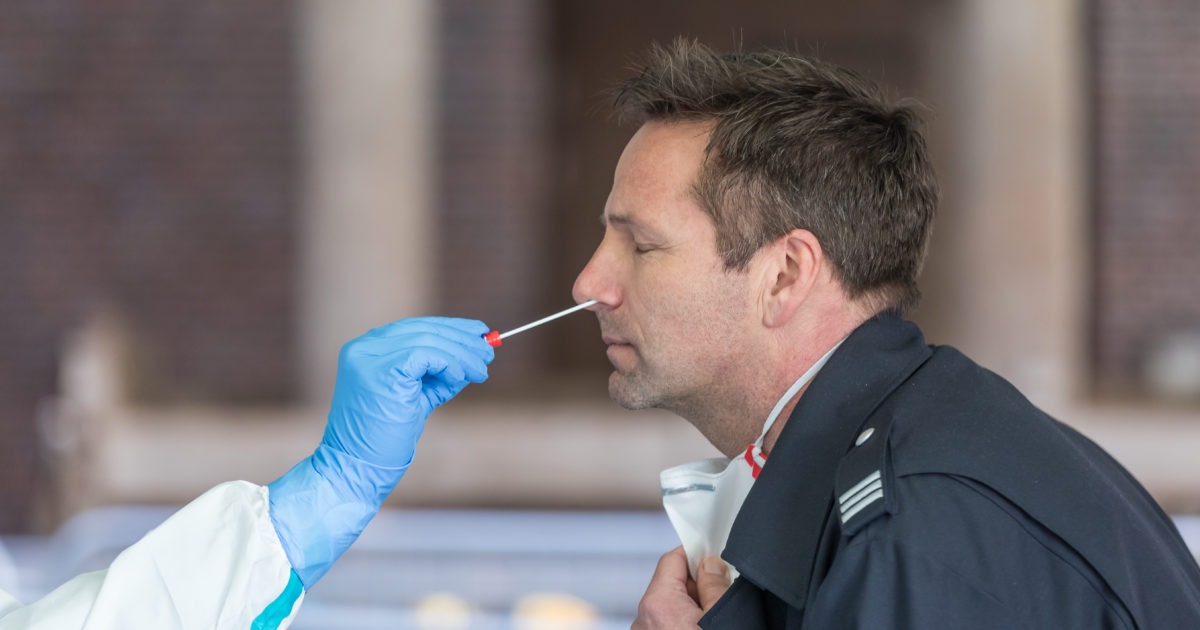
Ever since the first Covid-19 case was confirmed in the US in January 2020, the FDA has deployed emergency use authorisation (EUA) to accelerate as many relevant medical devices as possible through regulatory approval processes, and help ease the burden of the pandemic.
Granting an EUA means invoking section 564 of the Federal Food, Drug, and Cosmetic Act, which allows the FDA commissioner to permit unapproved medical products – or unapproved uses of medical products – to be implemented in diagnosing, preventing or treating serious diseases during an emergency.
The FDA has done this for numerous technologies and pieces of equipment over the course of 2020, most notably in the face of shortages regarding adequate testing resources, PPE (personal protective equipment) for healthcare workers, and ventilator machines.
And, as companies across the US attempt to tackle the pandemic’s ongoing impact, EUAs are still being handed out on a daily basis in order to streamline the FDA’s regulatory processes, and bring the latest solutions to both healthcare providers and patients.
We take a look at eight of the most important medical device EUAs the US regulator has handed out so far during the Covid-19 crisis.
Medical devices given EUA during Covid-19 pandemic
1. First Covid-19 testing kit
When the coronavirus pandemic began to take hold in the early months of 2020 a lot of emphasis was placed on the need for increased testing in the US, and several companies entered a race to develop their own diagnostic devices to meet these demands.
The US CDC (Centers for Disease Control and Prevention) became the first to have a molecular RT-PCR testing kit approved via an EUA on 4 February.

The test – which detects nucleic acids associated with the SARS-CoV-2 virus from nasopharyngeal patient samples – is now one of hundreds of diagnostic tools to have gained emergency FDA approval, with Roche, Thermo Fisher Scientific, Abbott and numerous other medical device firms producing their own RT-PCR tests since.
These efforts have seen the US become one of the most prolific nations when it comes to Covid-19 testing, conducting more than 800,000 daily tests in late-October according to Our World in Data.
2. Imported, unapproved respirators
With the US experiencing serious shortages of personal protective equipment (PPE) for healthcare workers, the FDA announced on 24 March that certain imported, disposable respirators – which hadn’t gained regulatory approval from CDC subsidiary NIOSH (National Institute for Occupational Safety and Health) – could be used during the pandemic.
This decision was made based on “the totality of scientific evidence” that some unapproved filtering facepiece respirators (FFRs) may be effective in preventing the spread of the SARS-CoV-2 virus, and should therefore be deployed when no adequate or approved alternative piece of equipment is available.
Under the EUA, respirators that meet the regulatory standards in Australia, Brazil, Japan, Korea, Mexico, or those holding a CE mark for use in the European Union, were authorised for use during the health crisis.
3. Battelle Decontamination System
Shortly after the FDA had given emergency use authorisation to certain PPE products, it also granted an EUA to the first system for sterilising N95 respirators, which are designed to be single-use, in between uses.
On 29 March, Ohio-based science and technology development company Battelle received an EUA for its Critical Care Decontamination System – allowing it to be used to clean compatible N95 masks so they can be reused when there is an insufficient supply of protective equipment in hospitals.
However, on 7 October, the FDA also issued Battelle with a warning letter for failing to have an appropriate process in place for reporting adverse events relating to its system, which is a requirement for all emergency use medical devices.
Other companies including Stryker, Steris and Duke Health have since received EUAs for their own decontamination systems to be used in sterilising PPE items during the pandemic as well.
4. Philips’ remote patient monitors
Dutch medtech giant Philips received an EUA for its IntelliVue Patient Monitors on 21 April.
This allowed healthcare providers to remotely monitor adults and children alike suspected of having Covid-19 in hospital settings, in order to reduce the risk of doctors and nurses being exposed to the virus.
The EUA means Philips’ IntelliVue bedside monitors, which measure and display multiple vital signs, and are also able to generate alarms to alert healthcare workers to physiological or technical issues, can be used outside of patient rooms.
5. Fresenius’ multiFiltrate PRO machines
In early-2020, when the coronavirus pandemic began to hit parts of Europe especially hard, German medical device firm Fresenius provided 10 of its multiFiltrate PRO machines to an emergency intensive care unit in a hospital in Milan.

These machines are used to provide acute kidney injury (AKI) patients with dialysis via continuous renal replacement therapy (CRRT) – a form of blood purification therapy.
With a sudden loss of kidney function being seen in some of the most severely-ill Covid-19 patients, the FDA granted Fresenius’ multiFiltrate PRO machines with an EUA on 30 April in an effort to alleviate shortages of CRRT devices.
6. CRISPR-based diagnostics
While RT-PCR tests remain the most commonly-used method for diagnosing Covid-19, other more novel methods for detecting the virus have also emerged throughout the course of the pandemic.
One of these technologies is CRISPR (clustered regularly interspaced short palindromic repeats), which was initially developed for use in therapeutics but is now having its gene editing capabilities applied to the field of diagnostics too.
It is believed that, because it uses different reagents to PCR-based tests – which were in short supply earlier this year due to the coronavirus outbreak – and can produce results more quickly with similar accuracy levels, CRISPR could provide a useful alternative to more traditional disease detection tools.
As of November 2020, two American start-ups have received an EUA for their own CRISPR-based Covid-19 testing kits, with Sherlock Biosciences becoming the first company in the world to have a diagnostic of this kind approved on 6 May, and Mammoth Biosciences following suit on 31 August.
7. Color’s self-swab collection kit
While the vast majority of coronavirus tests being conducted in the US in the first months of the pandemic were performed in hospitals, attention has increasingly shifted towards at-home testing, which may help to ease the burden on healthcare providers and is also more convenient for patients.
On 31 August, US healthtech company Color Genomics secured an EUA for its SARS-CoV-2 unmonitored collection kit, allowing patients to take their own nasal swab samples before sending them off to a lab for analysis.

Another US-based firm, binx Health, joined Color in gaining emergency use authorisation for an at-home sample collection kit on 20 October.
8. Predictive Covid-19 screening
On 24 September, California-based company Dascena – which uses machine learning algorithms to develop diagnostic solutions – gained an EUA for its predictive COViage system.
The system is used in hospitals to determine the likelihood of complications associated with Covid-19, including respiratory decline and unstable blood pressure, occurring in adult patients infected with the virus.
COViage uses a machine learning algorithm to analyse the patient’s data and predicts whether or not they are at risk of experiencing these problems, before notifying their healthcare provider in advance.
This means the patient can receive the treatment they need, which is often mechanical ventilation, at an earlier stage.






